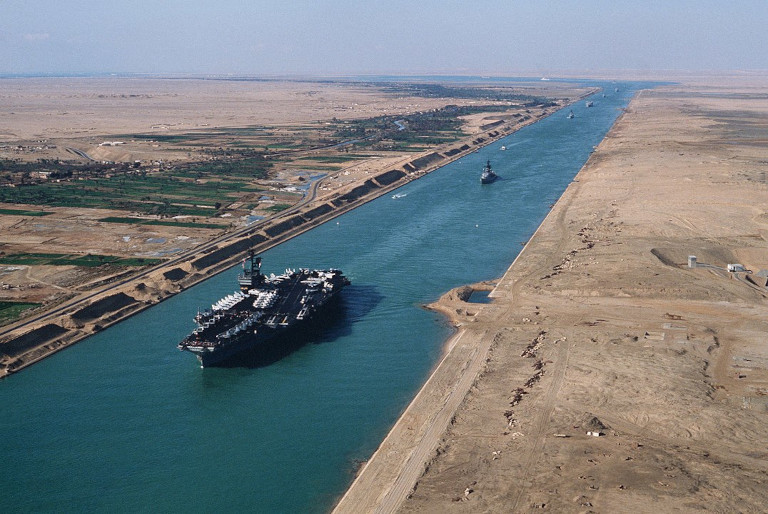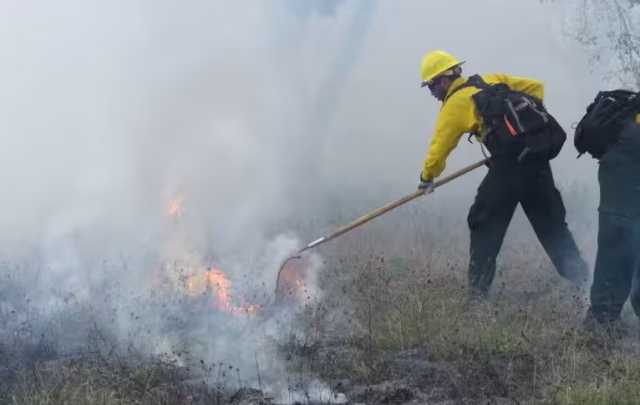In November 2023, the Houthis of Yemen began firing missiles at shipping in the Red Sea. This blockade has since escalated, with boarding actions commandeering entire ships, further missile strikes, and Western military retaliation. The response from the UK and US and their mission “to protect the free flow of international commerce” has not succeeded. The Houthis are not cowed, and the Red Sea — a vital shipping lane carrying 15% of world sea trade — has seen its traffic drastically decline. Many ships have had to reroute around the Cape of Africa, a journey that adds “3,500 nautical miles (6,500km) and 10–12 days…to each trip”. This is having a crippling impact on European industry. Economists have already forecast the return of high inflation as the cost of transport skyrockets and delays add complications to the tight schedules of European companies.
With much of this trade coming from Pacific Asia, another option for these ships was to cross the Pacific, pass through the Panama Canal, and head to Europe across the Atlantic. The Polycrisis had other ideas.
Panama is in the throes of climate-induced drought. Each ship that passes the Canal requires 50 million gallons of fresh water to do so. Depths are falling dangerously low and the number of ships that may pass at any one time has been severely curtailed. Delays of passage have skyrocketed. Vast, becalmed fleets of freighters linger at the entrances of the Canal, their mother companies engaging in fierce bidding wars to cut ahead in the queue system. The most expensive bid was $4 million paid by Japan’s Eneos Group. This cutthroat queue-jumping is only lengthening the waits of those who will not or can not pay. Cargoes spoil in the hot equatorial sun, whilst buyers wither for lack of new supply. Some have proposed using an overland rail alternative, a grossly inefficient and expensive substitute.
The only alternative to waiting is to circumvent the entirety of South America, rounding the Straights of Magellan, and adding 8,000 km to the journey — not to mention a trip through the stormy southern seas.
The Great Unraveling
These are blunt, siloed analyses of the shipping crisis. This vignette does not even consider the reason why the Houthis are closing the Red Sea, a combination of Palestinian solidarity, an Iranian proxy war, and an expression of their sovereignty against a Western world content to violently suppress them.
Neither does the vignette consider the wider situation in Panama. The drought does not merely affect the Canal. Panamanian agriculture is stressed, and pastureland drying up. Meanwhile, the government has considered cutting its public water subsidies, so as to redirect more freshwater from human consumption to the Canal.
What of the El Nino Cycle, what of the long echoes of Covid-era trade disruptions? Everything plays its role. This is a Polycrisis scenario, a term to describe an impossibly complex number of causes wreaking an impossibly complex number of effects.
This Tale of Two Canals is an example of what the Post Carbon Institute calls the ‘The Great Unravelling’. It is nowhere more apparent than the vast webs of trade that entangle the earth — and their constant fraying. Climate change did not cause the Red Sea crisis, just as geopolitical conflict did not cause the Panama crisis. Yet both find themselves indelibly intertwined and exacerbated by each other.
The globalized economy requires this trade. And it adds an intolerable pressure on governments already strained by mounting commitments and declining resources. This is what the great unravelling will look like as it continues to emerge, unrelated phenomena synchronising to exacerbate each other. Each crisis will impact an increasingly overstretched system with greater force. Attention, energy, and ability are sapped away by constant reactivity whilst long-term investments in the future wither on the stalk. Our transition could be derailed, just as it has begun:
“Record-breaking storms and economic disruptions represent more than temporary downturns, they force immediate responses that sap energy and will from necessary, long-term objectives. …delaying the pursuit of these goals beyond the point where we have time to reach them — focusing on the symptoms whilst the underlying cause worsens.”
The Tale of Two Canals is visible because such large impacts emerge from such tiny geographic regions — they are choke points for attention as much as they are for trade. Yet as the polycrisis advances, distributed crises will emerge, contact, and combine with far more frequency and much less visibility. These phenomena will not be easily trackable, and it’s no surprise that the term vibecession recently emerged to describe a situation where, despite all economic indicators suggesting things are better, everyone felt economically worse off. Times are inexplicable, and old explanations are increasingly uninformative. A part of any future resilience (personal or communal) must be the ability to adapt to a world beyond the level of predictability we have long taken for granted.





